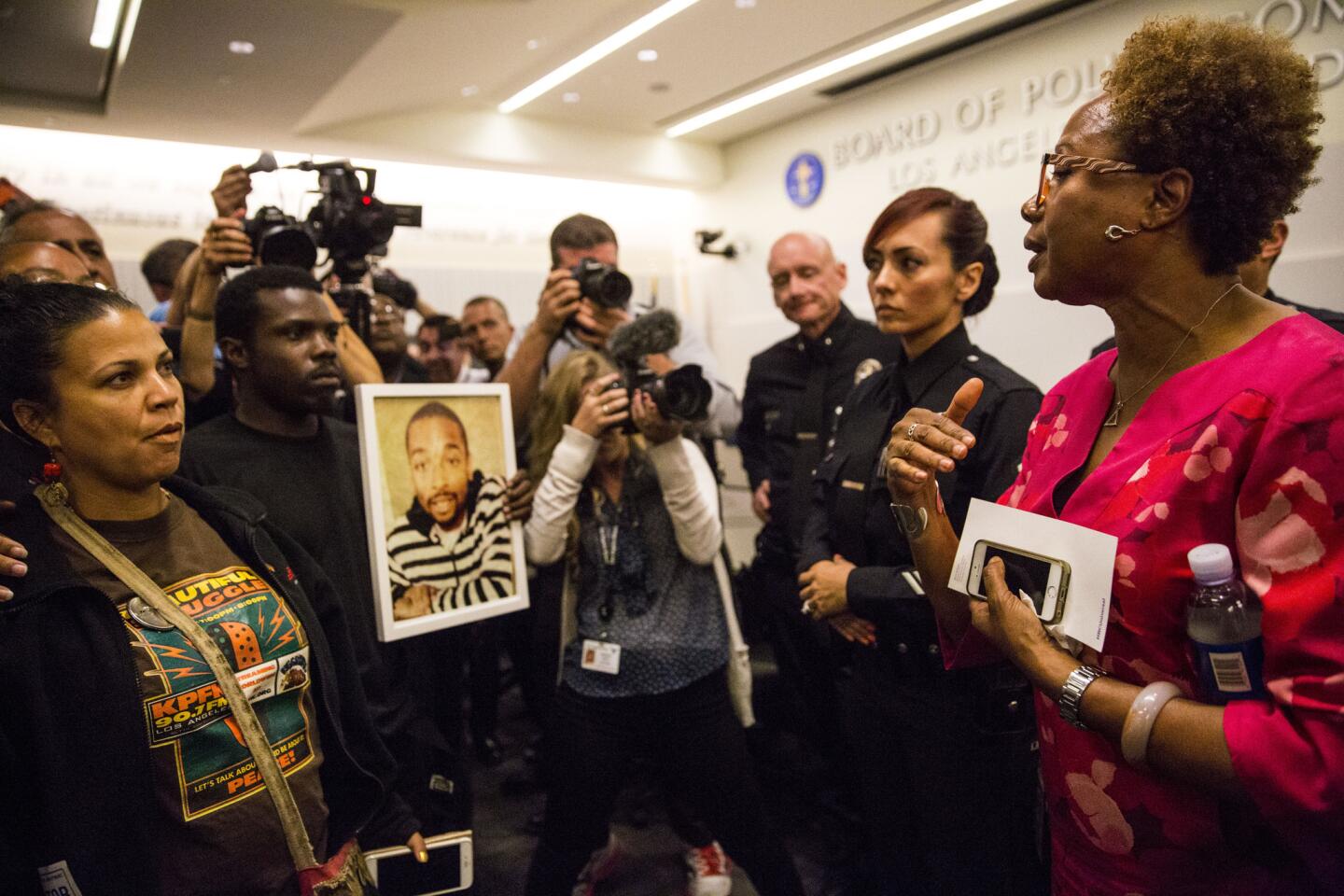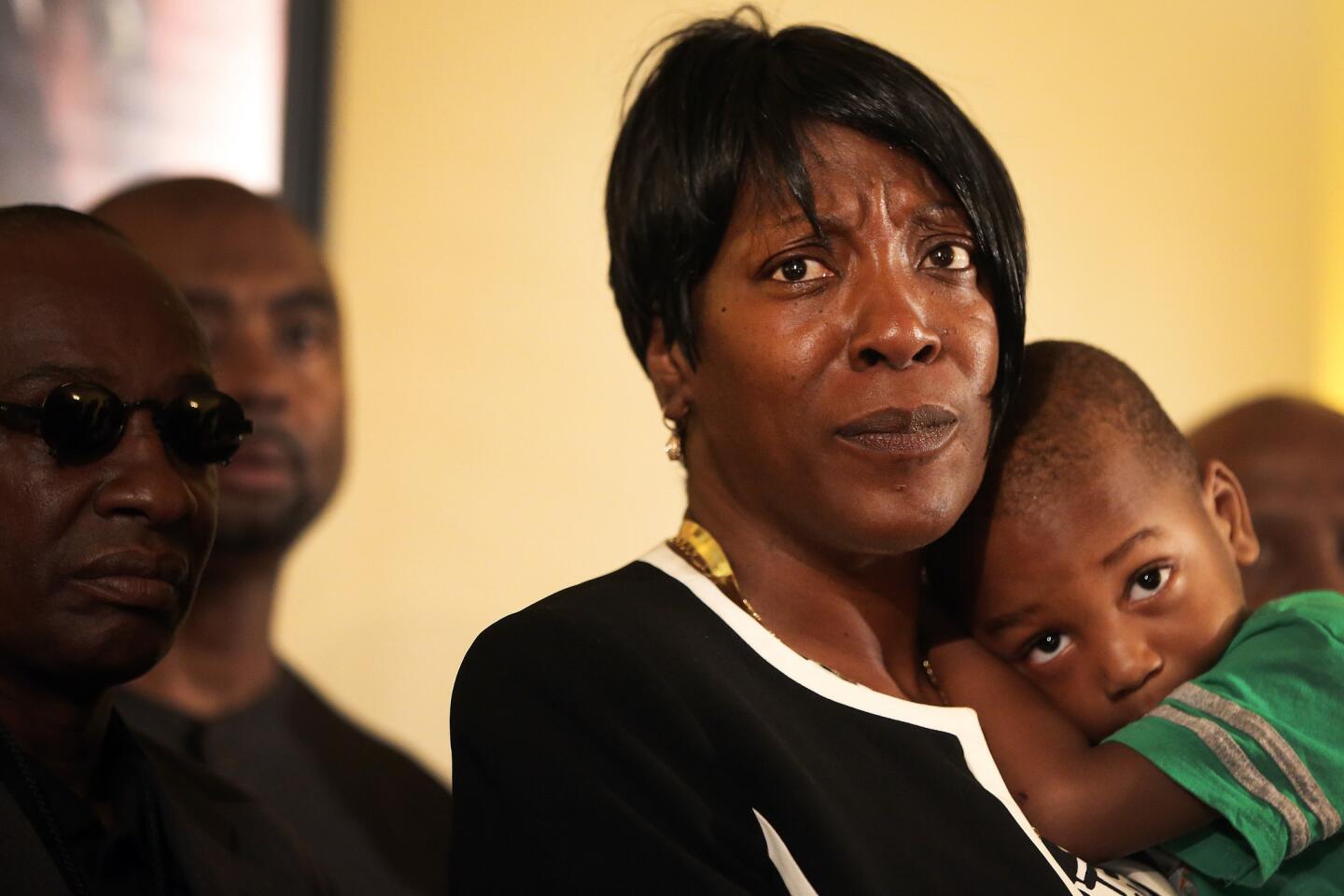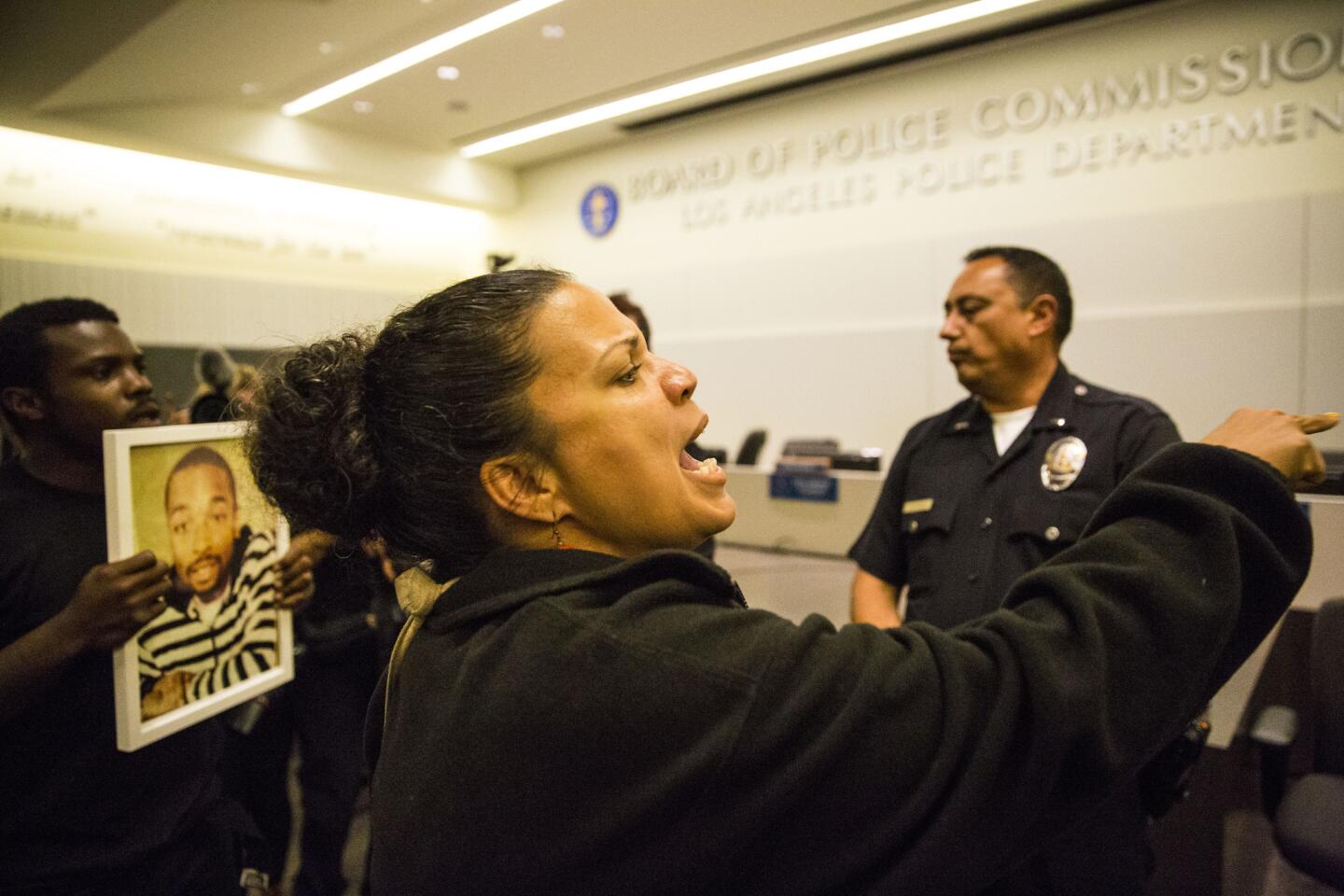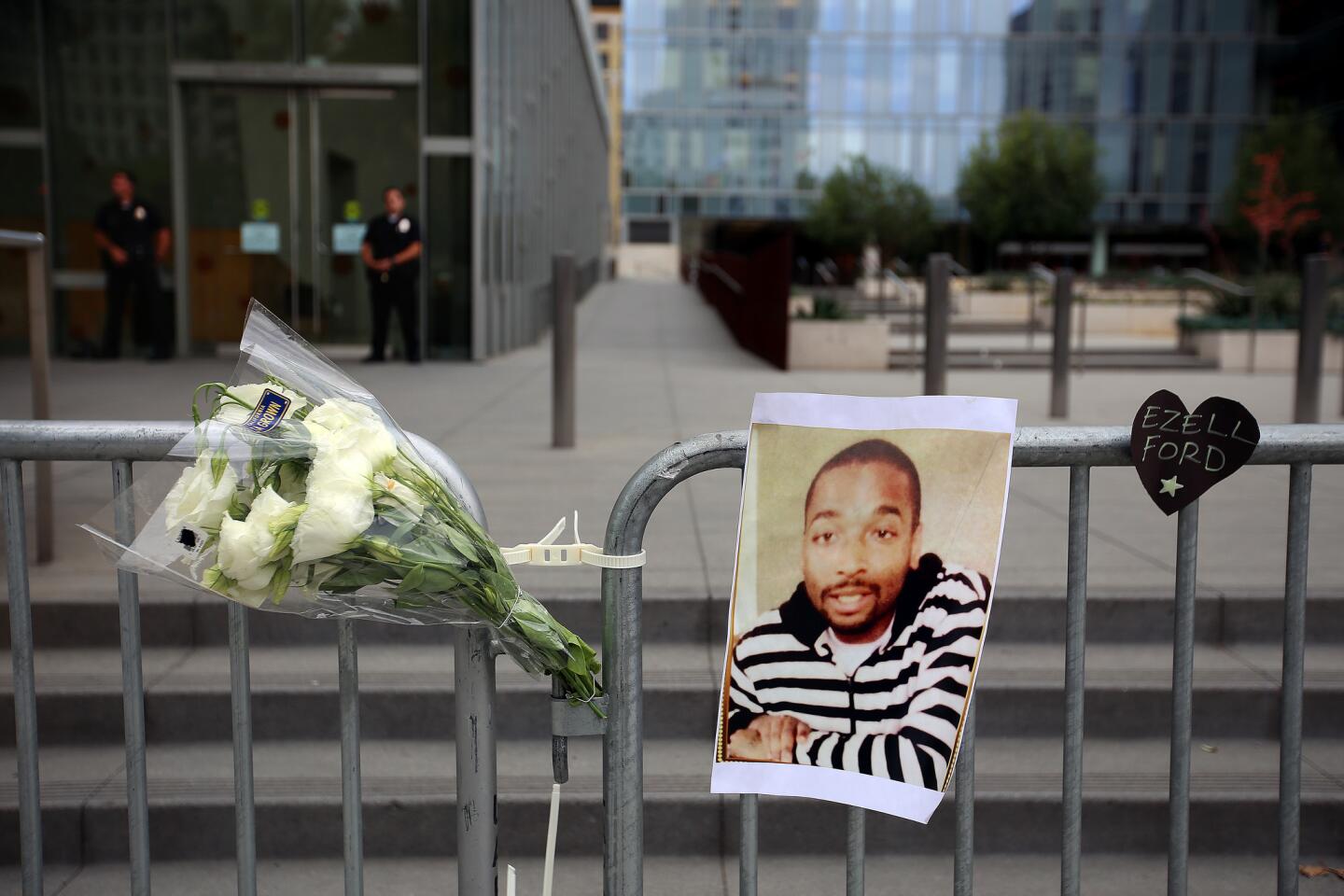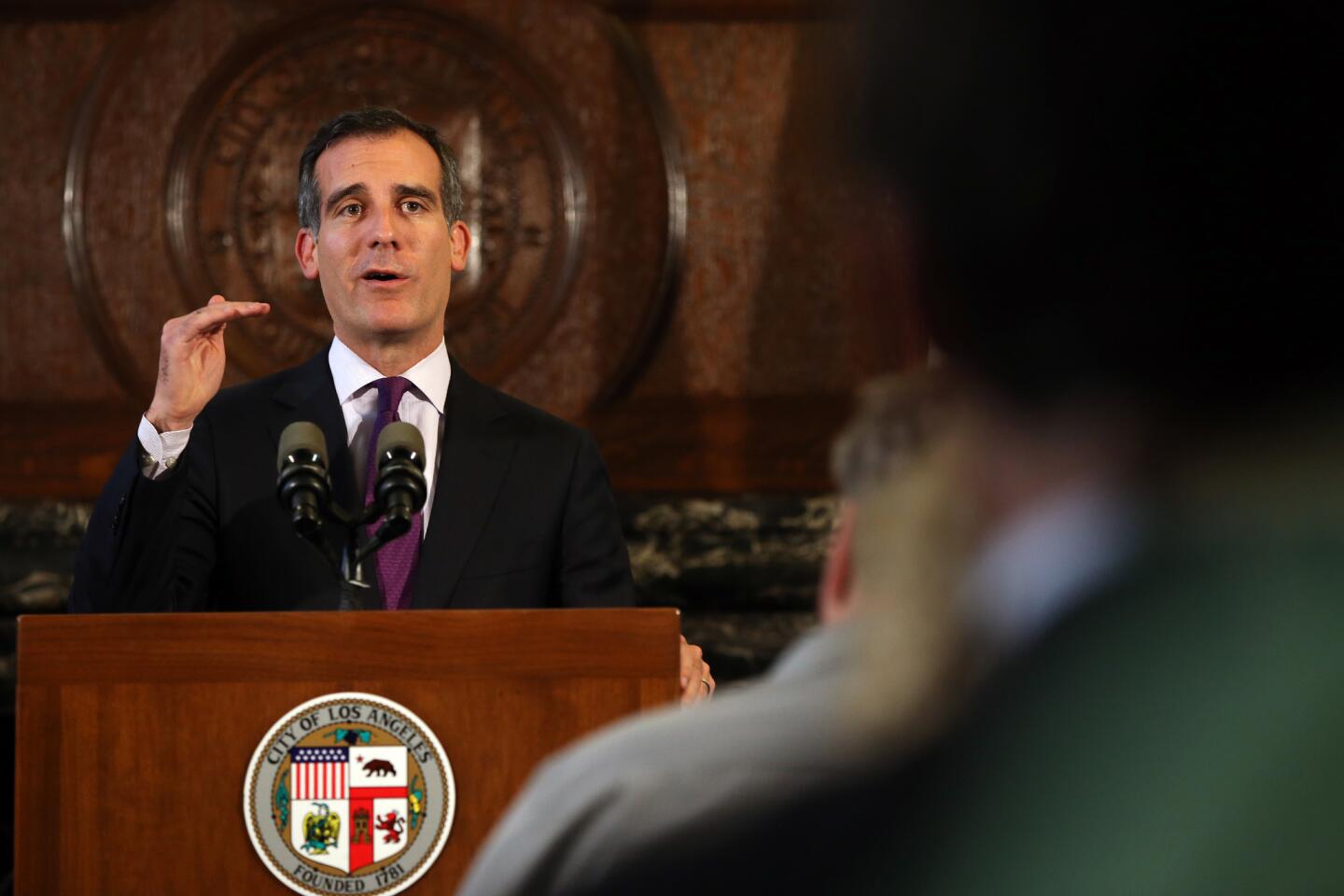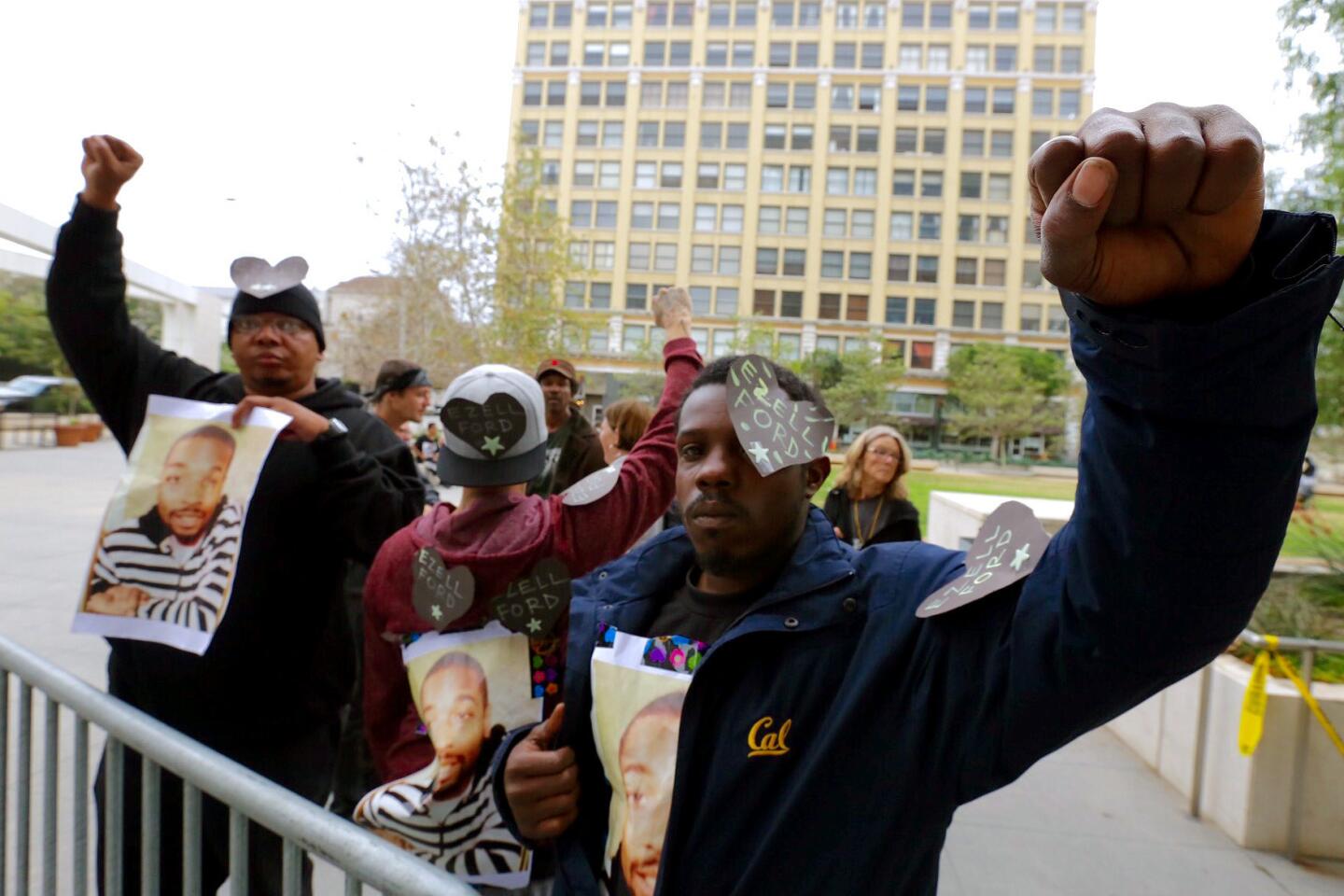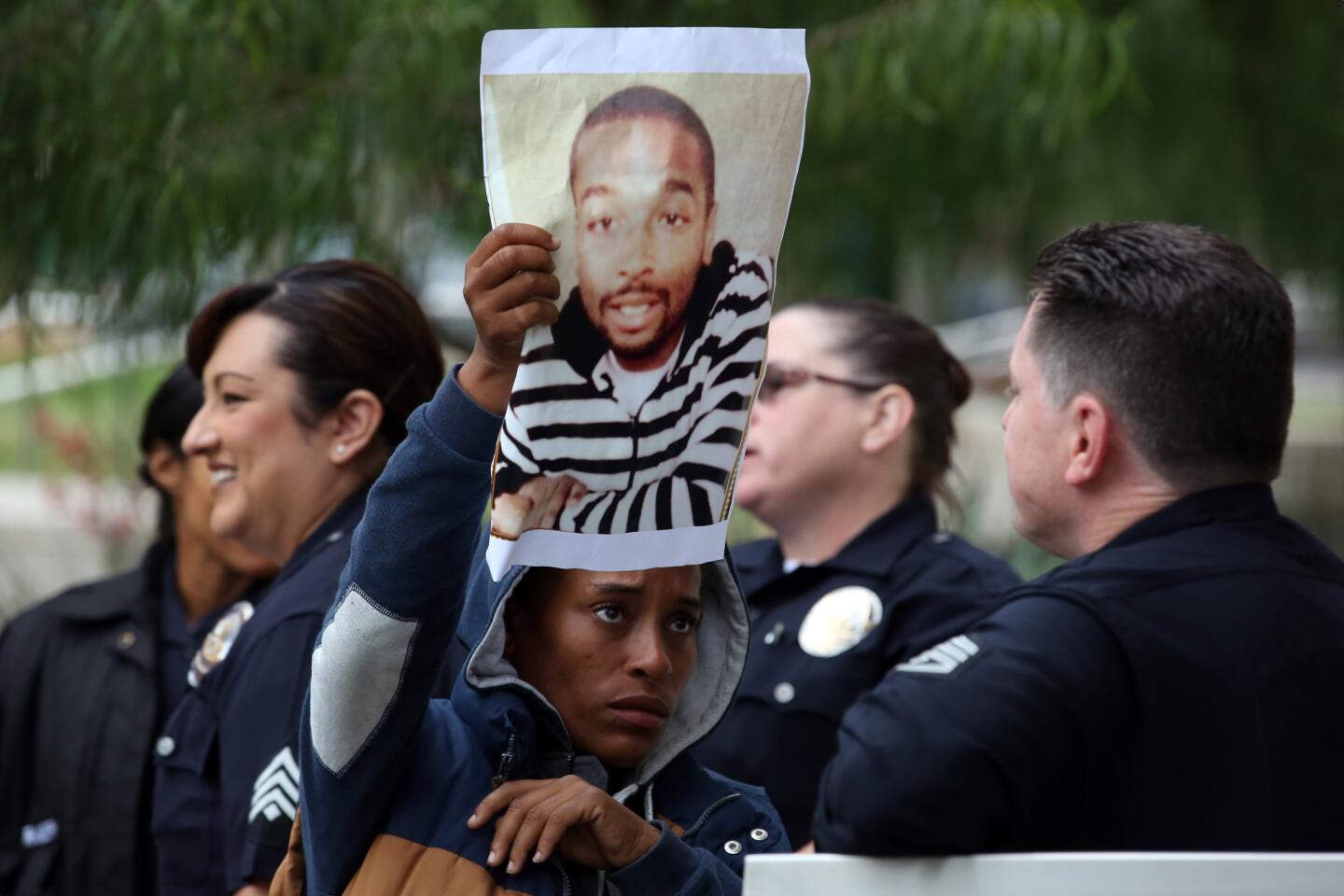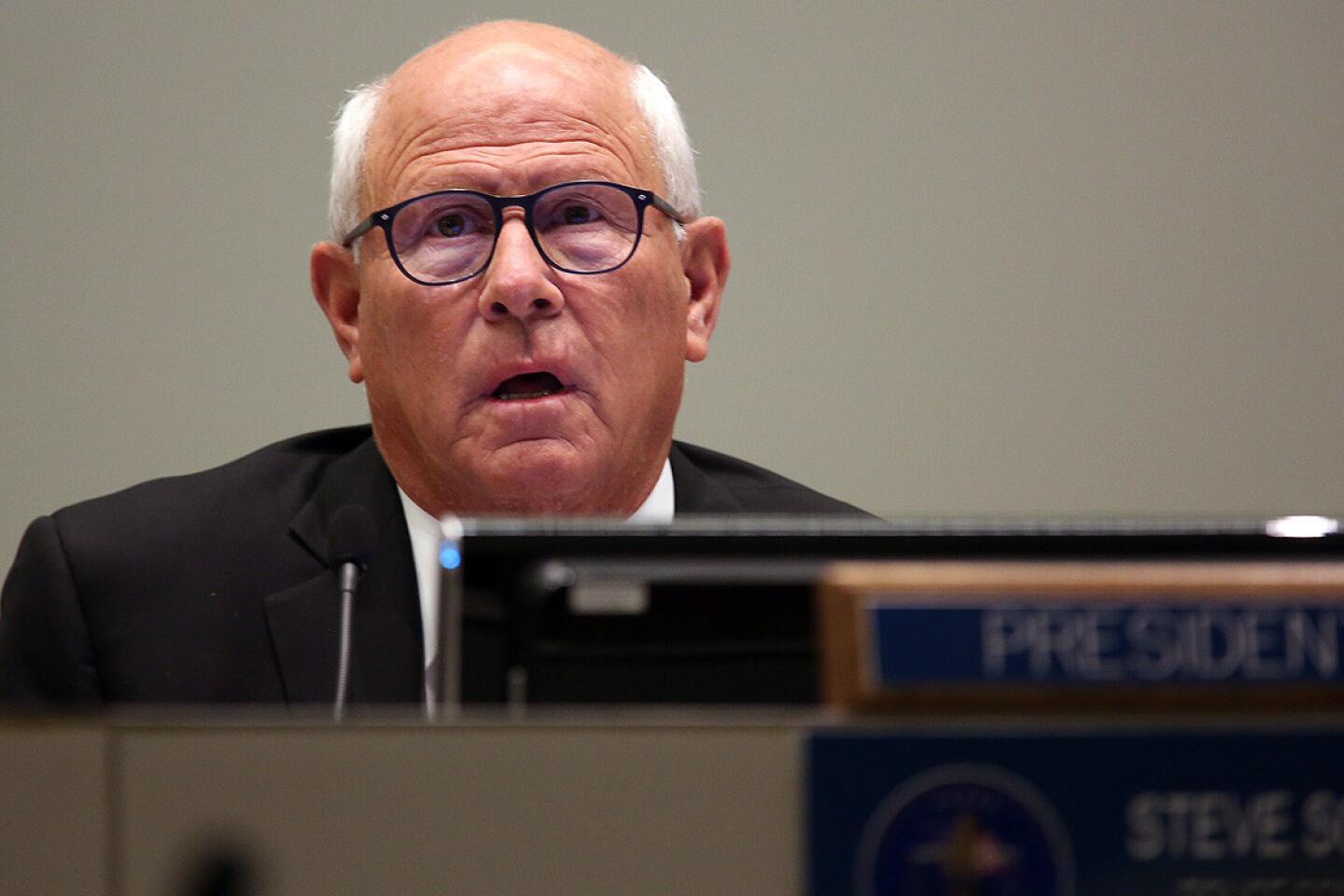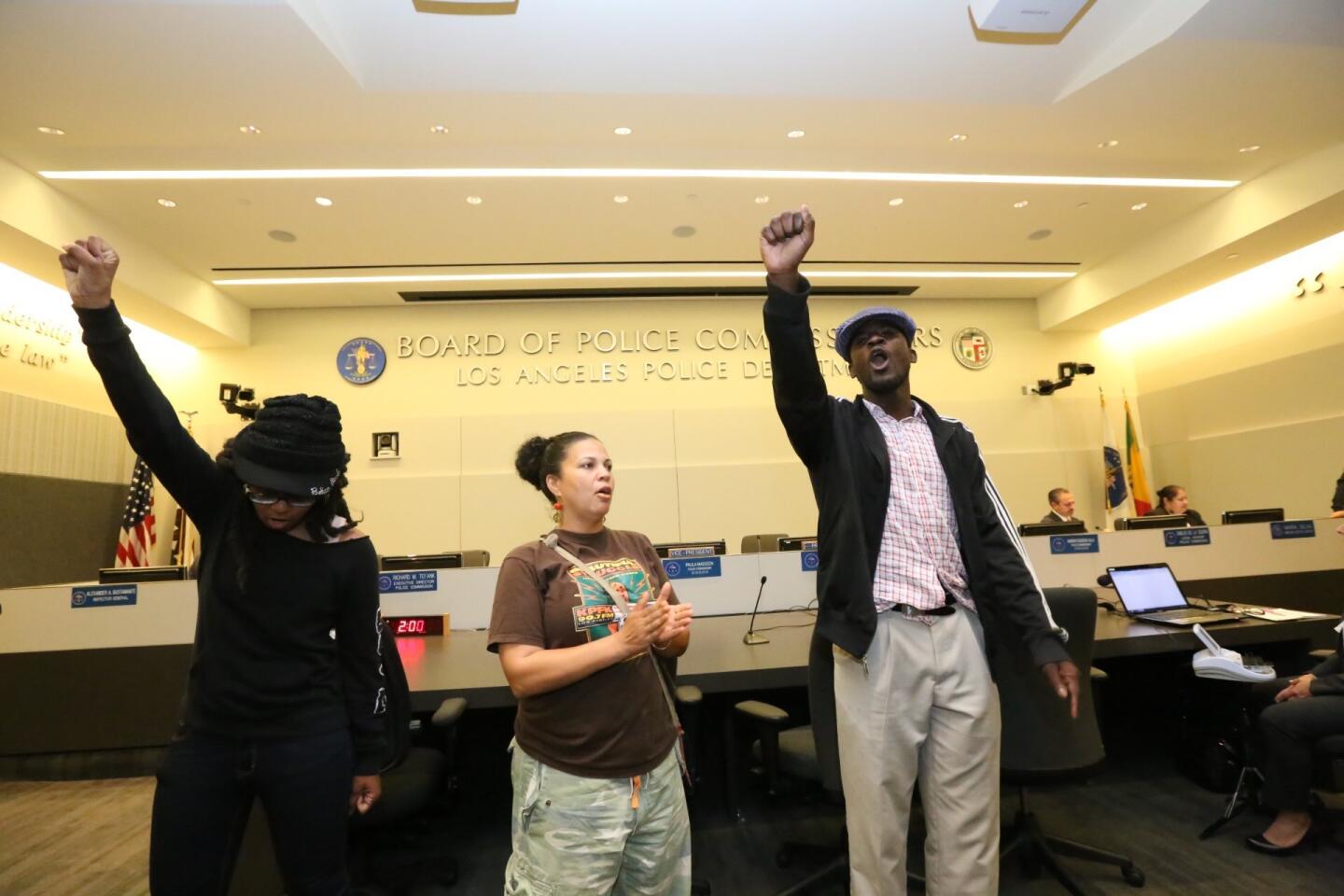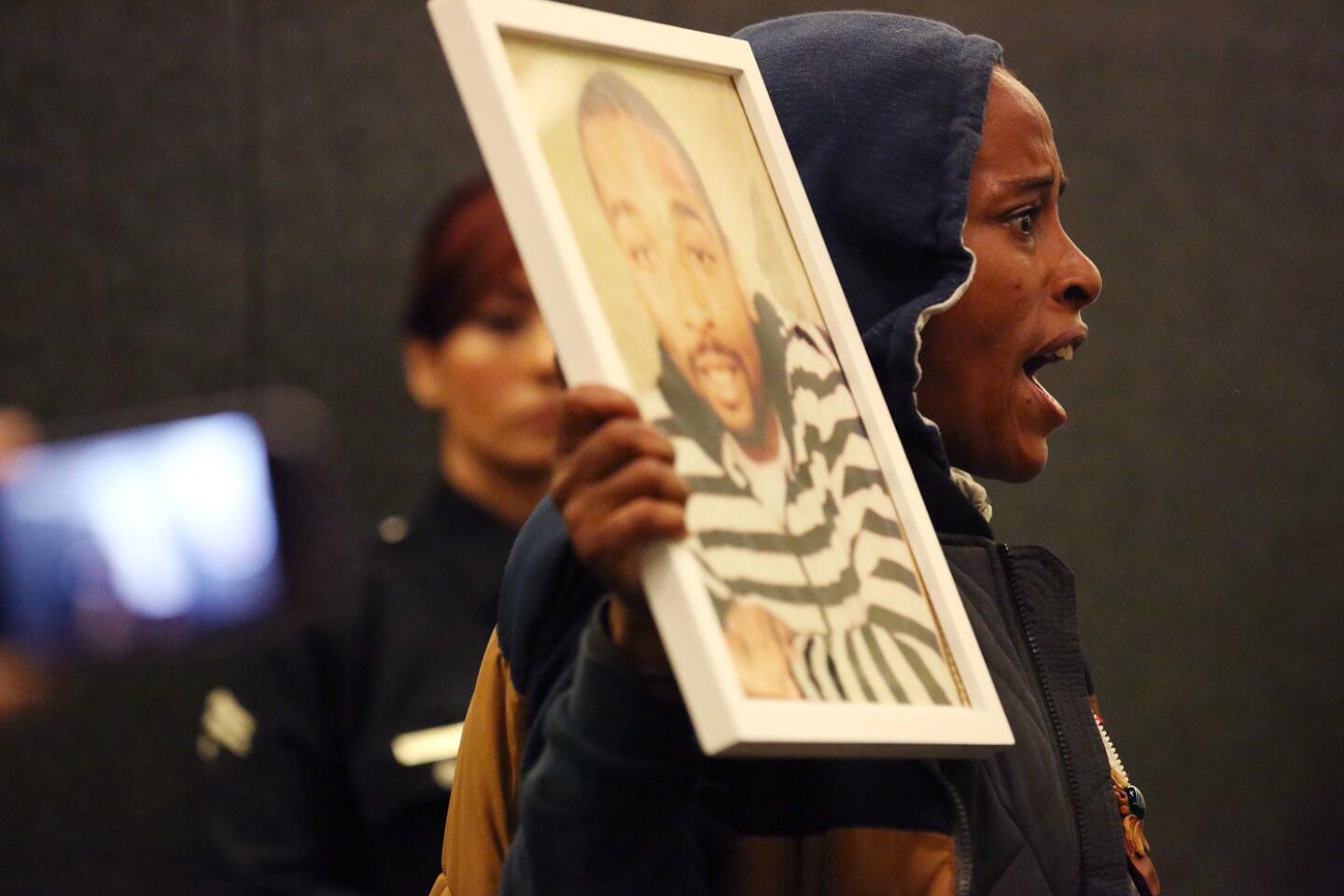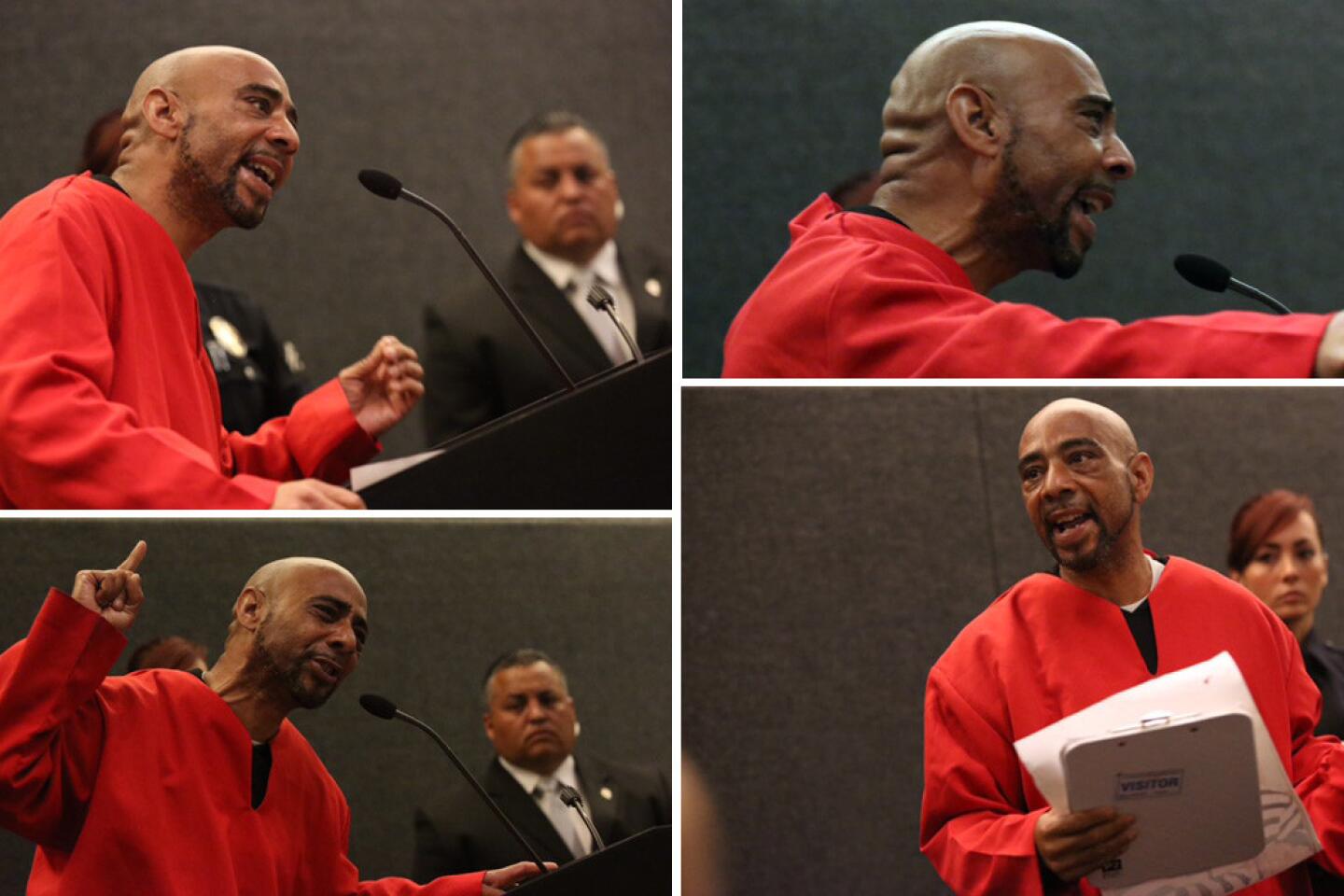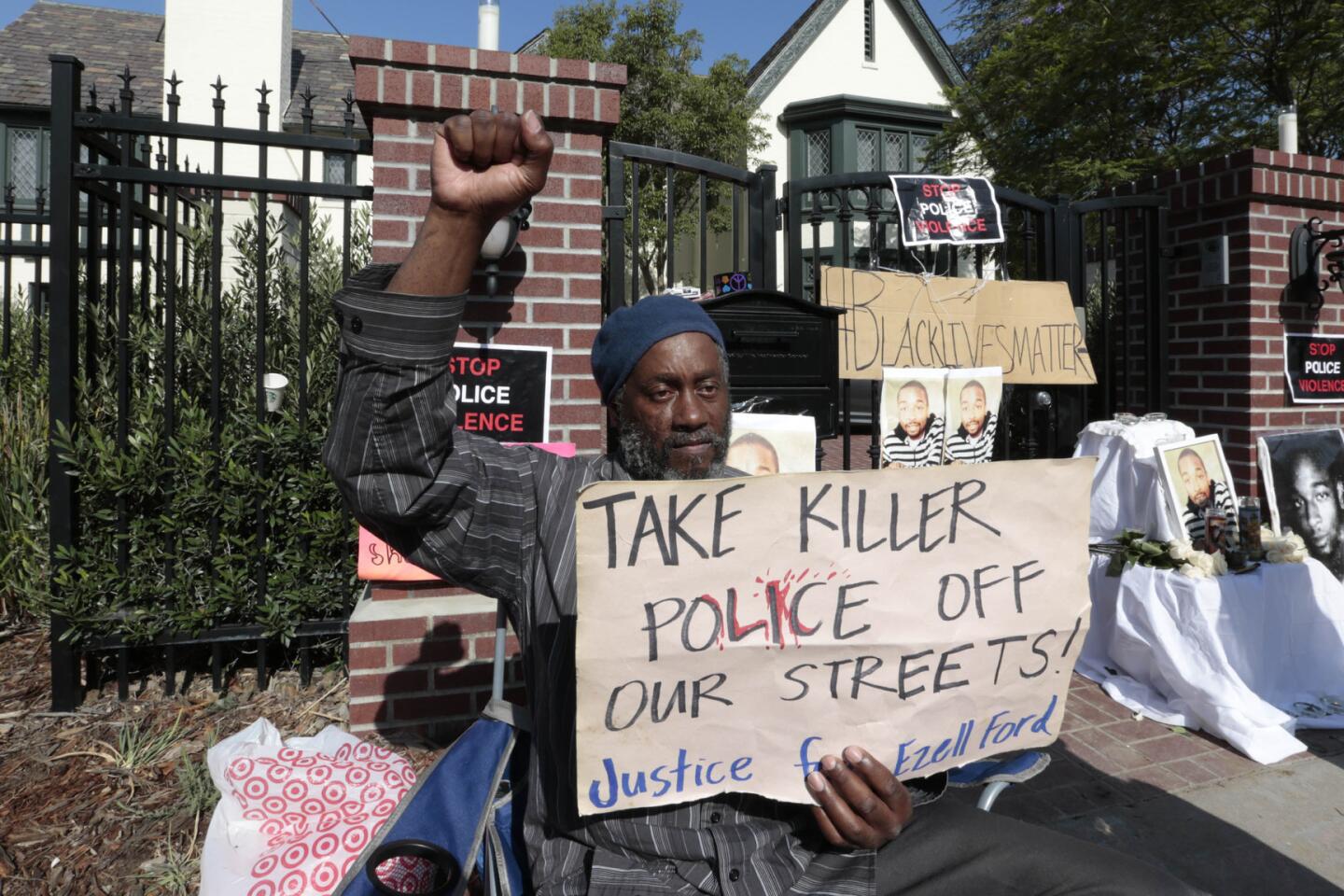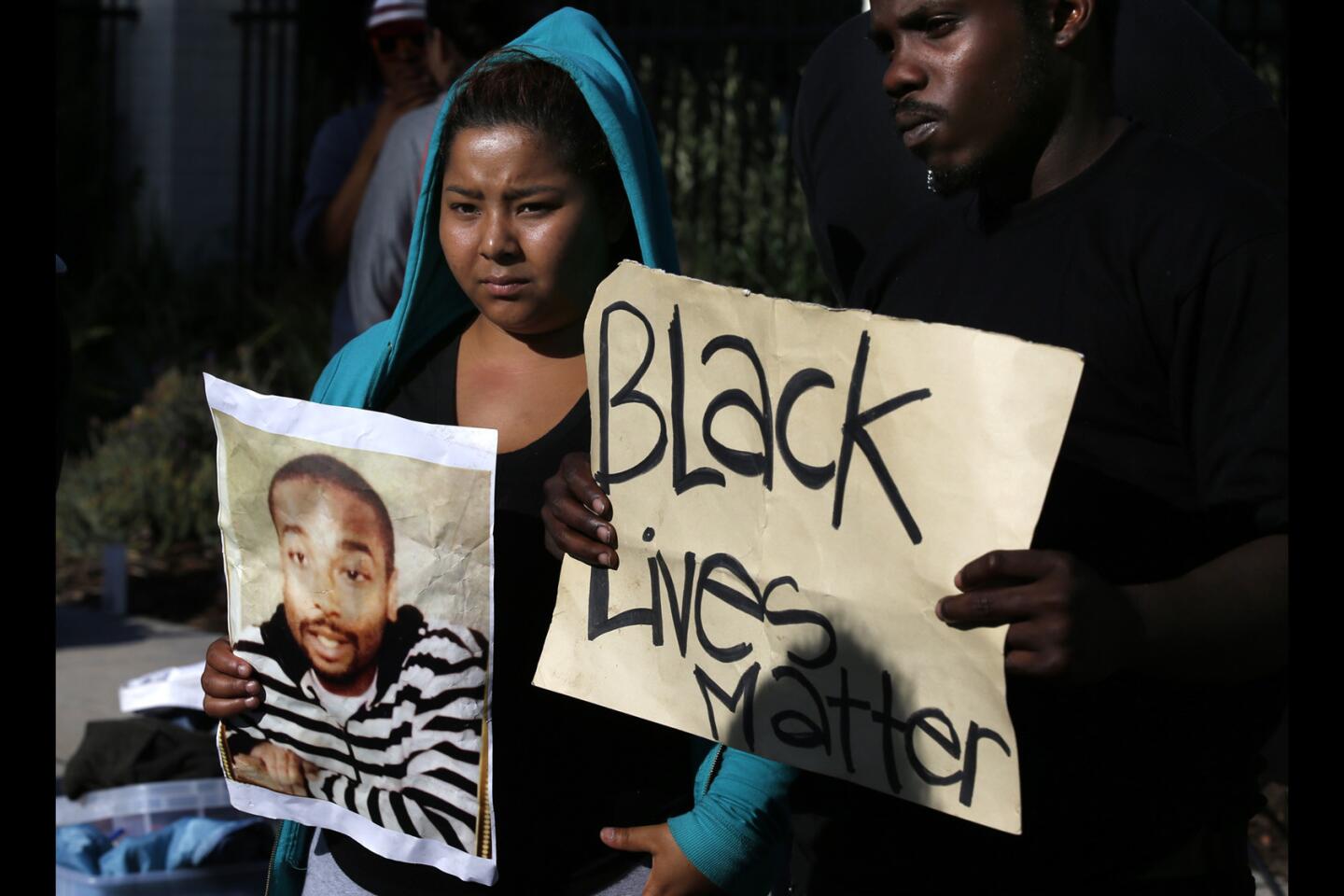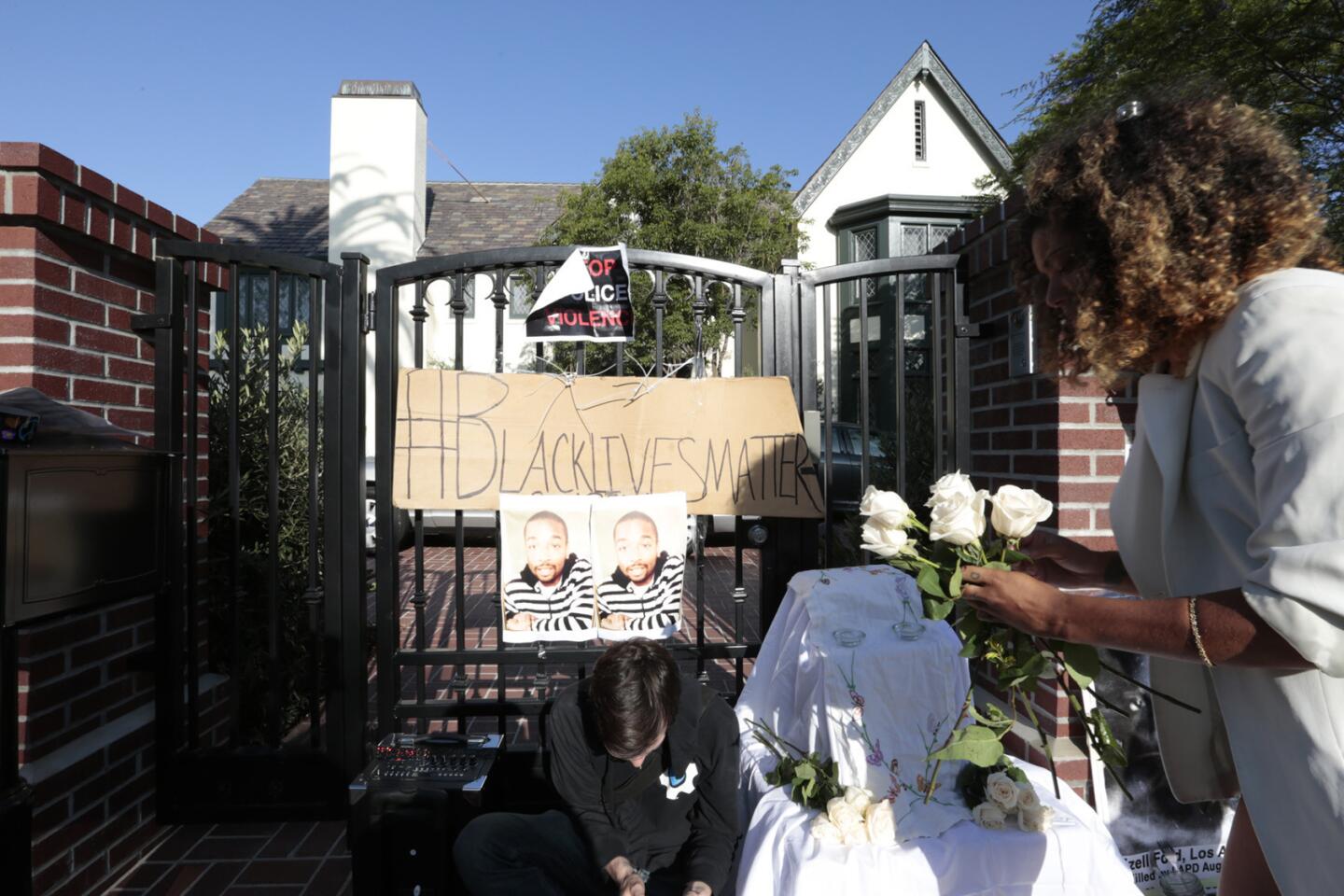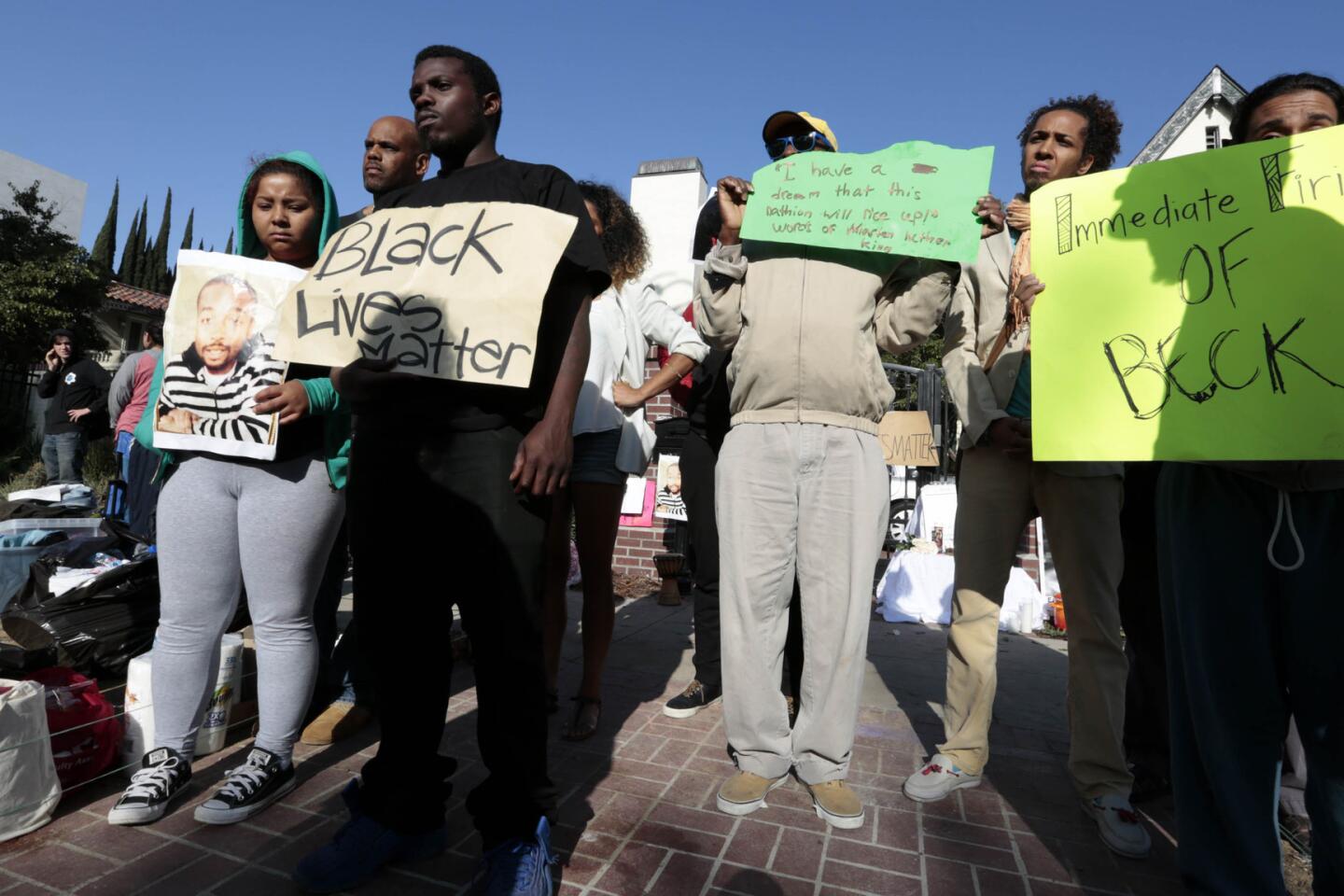Ezell Ford: What’s next after police commission finds officers violated policy?
- Share via
The L.A. Police Commission's ruling that one of the officers who shot and killed Ezell Ford last summer violated LAPD policy was an important step in the year-long probe. But it is by no means the final one.
On Tuesday, the commission ruled that while Officer Sharlton Wampler may have been in a fight for his life on Aug. 11, he did not have a reason to stop the unarmed 25-year-old beforehand. In a 5-to-0 vote, the commission concluded that Wampler's handling of the encounter was so flawed that it led to the fatal confrontation.
The commission also found that his partner that night, Officer Antonio Villegas, was wrong to pull out his weapon at an earlier point in the incident, but was ultimately justified in shooting the mentally ill black man.
Scrutiny of Ford's death, which became part of a larger discussion on police use-of-force and race relations after police shot and killed unarmed men in Ferguson, Mo., and Cleveland last year, is far from over. The case will continue to play out in courtrooms, the halls of the district attorney's office and inside police Chief Charlie Beck's office .
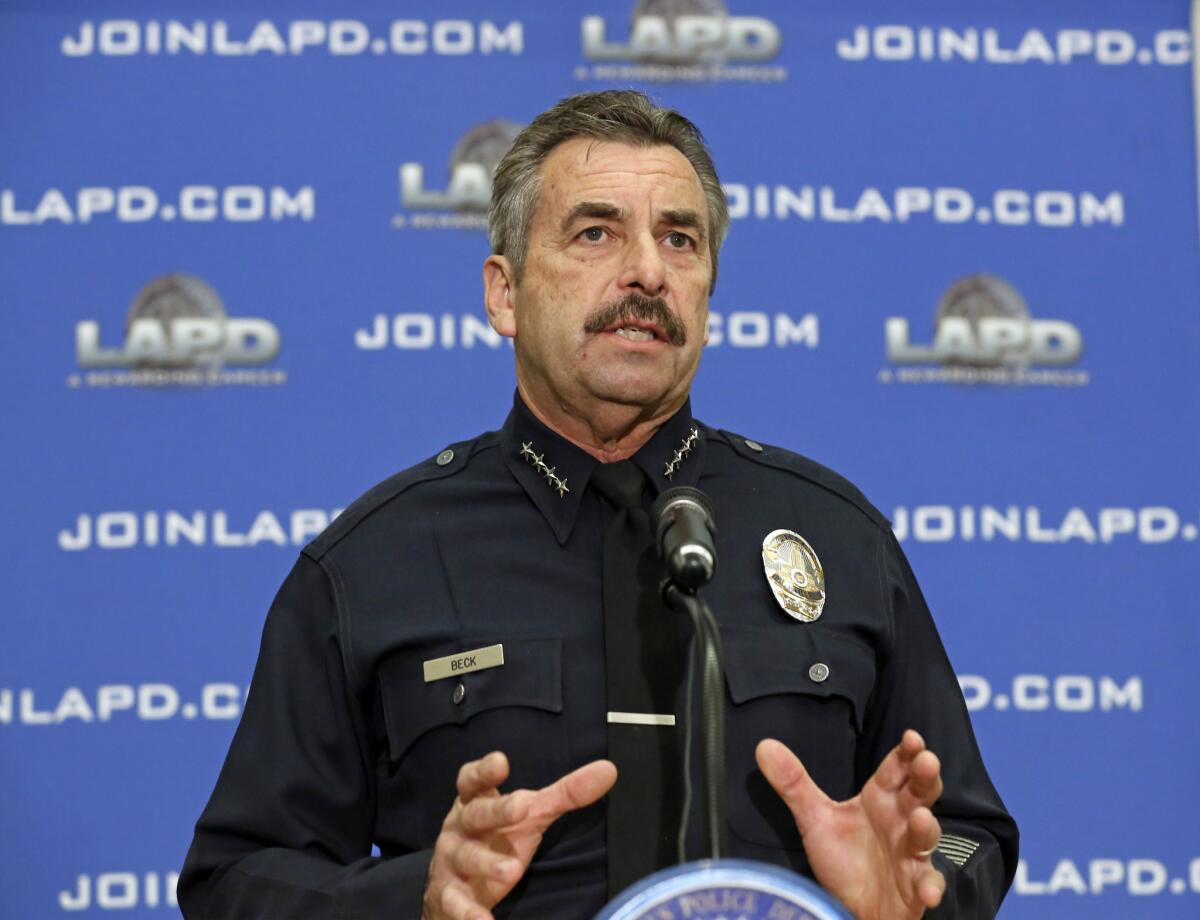
Los Angeles Police Chief Charlie Beck. (Reed Saxon / Associated Press)
The commission rejects the chief's ruling, but...
The Police Commission rejected Beck's finding that Wampler was justified in opening fire, but the chief is the only one with the authority to administer discipline against officers.
Beck could chose not to discipline either officer. He could also issue written reprimands or suspensions, or suggest that they be terminated. If Beck opts to have either officer fired, they would then have a Board of Rights hearing, which would either approve or reject Beck's findings.
No matter what the police chief decides, the LAPD's disciplinary decisions are never made public.
Beck and the Police Commission have sparred before over how he disciplines officers, and the chief has angered the panel by declining to punish officers after the commission found they violated policy.
He drew harsh criticism last year for opting not to fire an officer who was caught on tape using a racial slur, even after a department disciplinary board suggested the officer be terminated.
Possibility of criminal charges against officers?
The Los Angeles County district attorney's office is still reviewing the possibility of criminal charges against Wampler and Villegas, which are routine in police shootings where a person is struck by gunfire.
Prosecutions against officers, however, are rare. The district attorney's office has not prosecuted an LAPD officer for an on-duty shooting since 2001. Officer Ron Orosco was sentenced to five years in prison after pleading no contest to charges that he shot an unarmed motorist in the back during a dispute over a traffic ticket.
Ford's family has repeatedly called for murder charges to be filed by Dist. Atty. Jackie Lacey. After the decision Tuesday, Ford's mother again called on Lacey to act.
"We need to hear from you," Tritobia Ford said. "The investigation is over.... You need to step up."
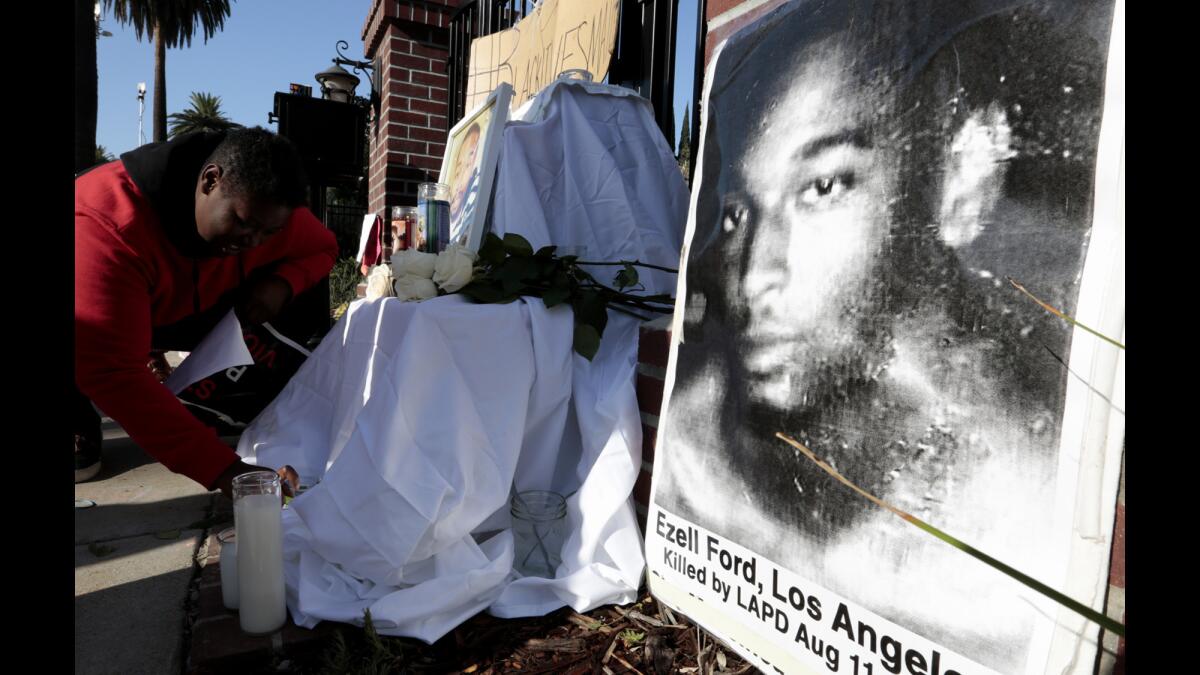
An activist with Black Lives Matter lights candles at an altar for Ezell Ford in front of L.A. Mayor
An activist with Black Lives Matter lights candles at an altar for Ezell Ford in front of L.A. Mayor Eric Garcetti's residence on June 8. (Mark Boster / Los Angeles Times)
Where does the Ford family's wrongful death lawsuit stand?
Ford's family filed a wrongful death suit against the department in September of last year, one month after the shooting.
In the civil suit, the family claimed Ford was not committing a crime when officers approached him, and said their son was complying with police orders to lie on the ground when he was shot.
The suit also alleged the officers knew Ford was mentally ill, but did not take that into account on the day of the shooting. The officers, one of whom had encountered Ford before, told internal investigators they did not recognize him on the day of the shooting.
Follow @JamesQueallyLAT for breaking news.Sign up for Essential California
The most important California stories and recommendations in your inbox every morning.
You may occasionally receive promotional content from the Los Angeles Times.
